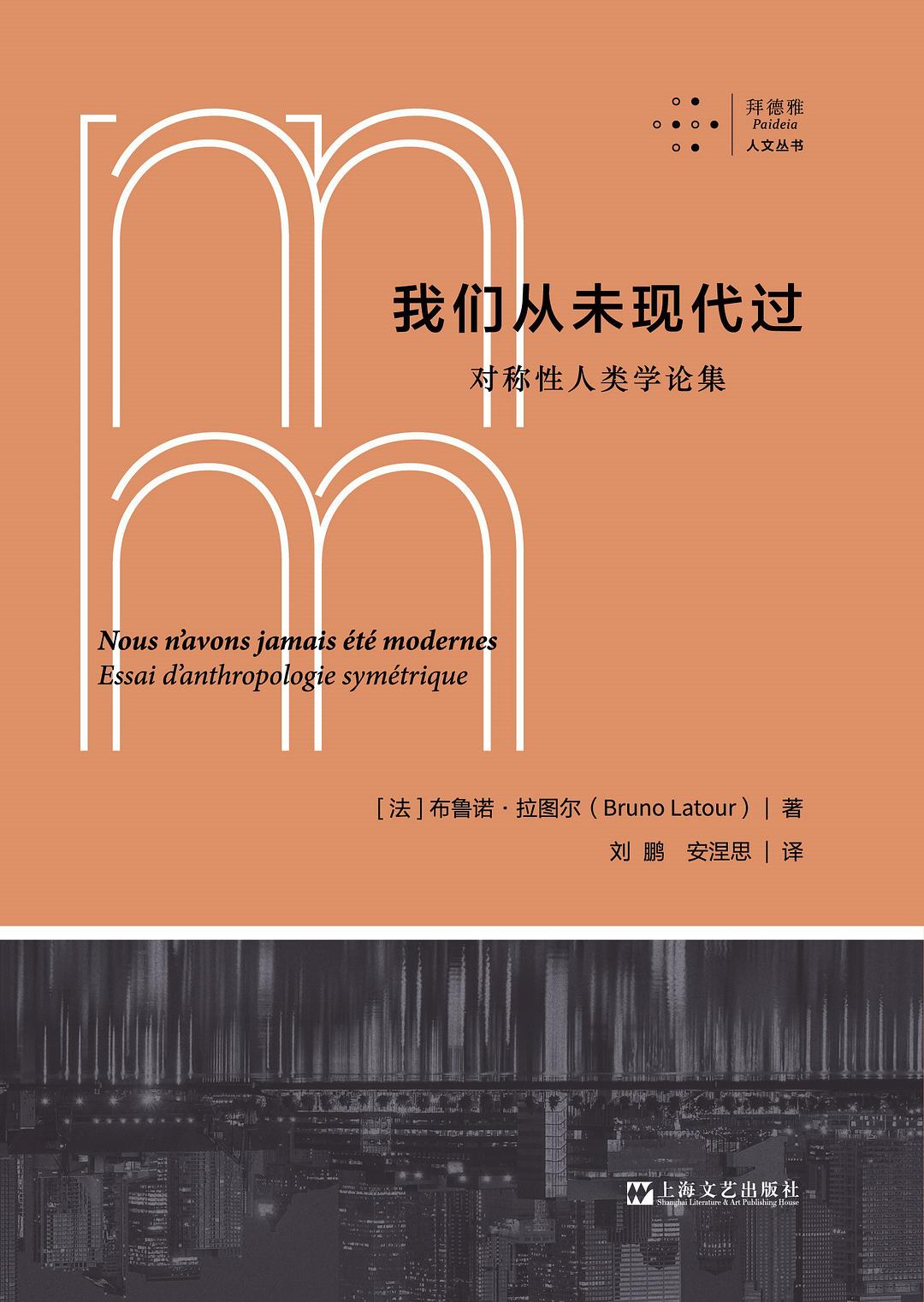WULOLIFE
《我们从未现代过 : 对称性人类学论集》 作者: [法]布鲁诺·拉图尔 译者: 刘鹏 / 安涅思出版社: 上海文艺出版社
《我们从未现代过 : 对称性人类学论集》 作者: [法]布鲁诺·拉图尔 译者: 刘鹏 / 安涅思出版社: 上海文艺出版社
Couldn't load pickup availability
Description
内容简介· · · · · ·
★ 科学史、科学哲学、科学人类学领域必读书目,时隔12年修订再版
★ 从未现代过,现代性不过是一种信仰
★ 模糊科学、人文与社会科学的边界,重塑我们的精神图景
-编辑推荐-
★河流污染、冷冻胚胎、艾滋病病毒、臭氧层空洞……这些侵入我们世界的奇怪之“物”是自然还是文化的一部分?我们要如何理解它们?
★作为现代人,我们相信随着科学的兴起,世界已经发生了不可逆转的改变,这种改变进而将我们与原始的、前现代的先辈们分割开来。然而,如果我们放下此种执念,世界将会变成什么样子?
★现代意味着什么?成为一个现代人又意味着什么?一部在当前关于现代性、反现代性、后现代性的争论中无法绕开的著作,一次对现代性本身之定义和构成的深刻反思,一种对科学的全新解读。
-内容简介-
本书颇具原创性地介入了当前关于现代性、反现代性、后现代性的争论之中,作者认为,这些争论都深陷于现代性所奠基的二元对立(主体与非人类……)的错误之中,并割裂了时间。我们的“现代”社会从来没有按照支撑其世界表征系统的宏Note:事实上,现代人在实践中从来没有停止过制造杂合体,那些既属于自然又属于文化之物。在此意义上,拉图尔的这本科学人类学著作告诉现代性在很大程度上不过是一种信仰。
基于此,拉图尔独具匠心地以“科学论”的工作为基础建构出一种不同于后现代主义的“非现代”立场,并发展出一种对称的人类学。他力图在实践中将人类与非人类这对范畴联结起来,打破自然与历史之间的割裂和前现代、现代与后现代之间的分裂,并试图通过组建拟客体,重构作者所谓的“现代制度”。本书模糊了科学、人文与社会科学之间的边界,推进了人们对三者的理解,这无异于重塑我们的精神图景。
-专家推荐-
如果您喜欢一种反二元论式的哲学讨论,如果您想打破诸如主体与那么您肯定会喜欢上拉图尔……目前而言,在打破制造与发现、自然与历史之间的割裂以拉图尔的工作是最出色的。
——理查德•罗蒂
在当前有关现代性、反现代性和后现代性等的争论中,[拉图尔]无疑占据了一个非常重要且颇具原创性的位置。他一方面致力于在实践中将人类与非人类这对范畴联结起来,另一方面又对康德、黑格尔、巴什拉、哈贝马斯、鲍德里亚、利奥塔和海程度更加热烈。
——安德鲁•皮克林
这是一本有关形而上学和政治本体论的著作。拉图尔的目标是打破自然、权力、语言之类的哲学范畴。书中远见卓识俯拾皆是,从他对多元自然主义(相对于多元文化主义)的倡导到对社会理论家承认客体之历史性的呼吁,不一而足。这是一本奇妙的著作,它与科学史和科学哲学领域中自缚手脚的奉承之作针锋相对、分道扬镳,给人以耳目一新之感。这本书读起来颇有难度,但对那些具有哲学智慧者而言却是一个奖赏,得一读。
——罗布特•N. 普罗克特
这本书针对当代与“现代主义”这一观念的各类问题,进行了一次既异彩纷呈、深思熟虑又囊括无遗的集中展示。书中集中关注了三个相互关联的重要领域:学与技术、政治与政府、语言学与符号学研究。拉图尔在考察前现代主义者、后现代主义者、反现代主义者以及所谓的现代主义者的基础上,得出结论:我们真的从未现代过,如其所述,一种祛除了其诸多有害特得我们追求的。
——《选择》
作者简介· · · · · ·
-作者简介-
布鲁诺•拉图尔,法国当代著名科学哲学家、人类学家和社会学Science and Technology Studies)他先后任教于巴黎高等矿业学校、巴黎政治学院。主要著作有《实验室生活:科学事实的建构过程》(19 79,与伍尔加合著)、《细菌:战争与和平》(1984)、《科学在行动:怎样在社会中跟随科学家和工程师》(1987)、《我们从未现代阿哈米斯或对技术的爱》(1 992)、《潘多拉的希望:科学论中的实在》(1999)、《自然的政治:如何把科学带入民主》(1999)、《重组社会:行动者网络理论导论》, (2005),
-译者简介-
刘鹏,哲学博士,南京大学哲学系副教授,主要研究方向为法国科学哲学、科学技术论。
安涅思(Agnès Chalier:学和剑桥大学接受学术训练,目前就职于剑桥大学,主要研究方向为欧亚科学史和科学哲学。
